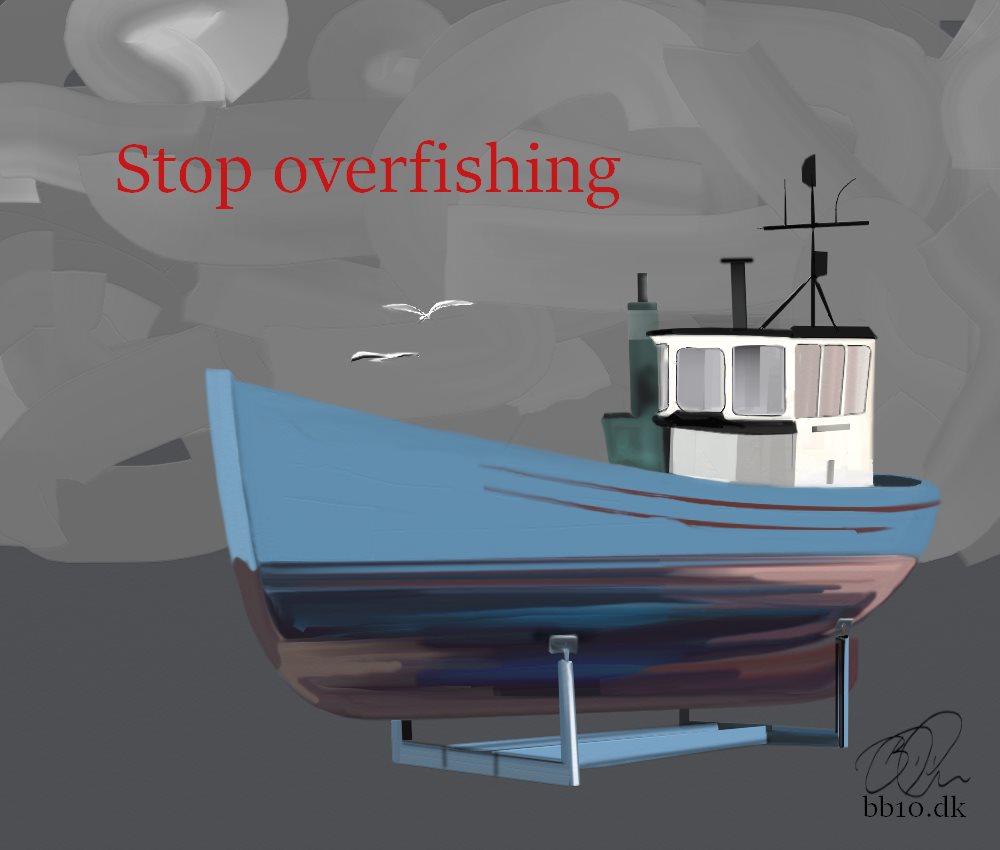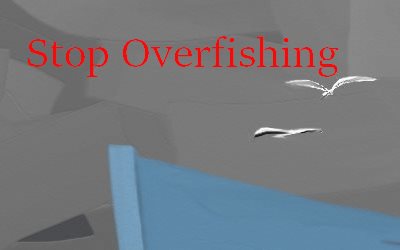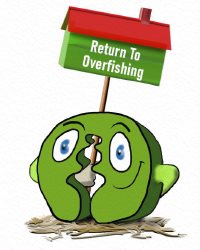Overfishing is emptying our oceans
Overfishing is emptying our oceans
Stop Overfishing
Overfishing is emptying our oceans.
In simple terms it means catching too many fish at a faster rate than what fish can reproduce naturally. It has now become a major global environmental problem.
In European seas, 64% of fish populations are overfished.
In the Mediterranean Sea, overfishing has reached a critical 96%. For decades, politicians have ignored scientific advice when setting annual fish catch limits in our seas. Illegal fishing, weak monitoring and enforcement measures, destructive fishing methods, and fishing in areas where fish grow and spawn are all factors behind overfishing.
Overfishing occurs when more fish are caught than the population can replace through natural reproduction.
Gathering as many fish as possible may seem like a profitable practice, but overfishing has serious consequences.
The results not only affect the balance of life in the oceans, but also the social and economic well-being of the coastal communities who depend on fish for their way of life.
Billions of people rely on fish for protein, and fishing is the principal livelihood for millions of people around the world.
For centuries, our seas and oceans have been considered a limitless bounty of food.
However, increasing fishing efforts over the last 50 years as well as unsustainable fishing practices are pushing many fish stocks to the point of collapse.
Source: Oceana/World Wild Life
Overfishing
Fishing and aquaculture
Fishing and aquaculture can have both positive and negative impacts on the environment.
Here are some key points regarding their environmental impact:
- Overfishing: Unsustainable fishing practices can deplete fish populations and disrupt marine ecosystems.
- When fish populations are harvested at a rate faster than they can reproduce, it can lead to a decline in the overall fish stocks and disrupt the food chain.
- Bycatch: Fishing methods like trawling and longlining often result in significant bycatch, which refers to the unintentional capture of non-target species.
- This can include marine mammals, sea turtles, birds, and juvenile fish. Bycatch can lead to the decline of endangered species and disrupt the ecological balance.
- Habitat Destruction: Certain fishing practices, such as bottom trawling, can cause physical damage to the seafloor and destroy important habitats like coral reefs and seagrass beds.
- This destruction can have long-term consequences for marine biodiversity and the overall health of the ecosystem.
- Pollution: Fishing vessels can contribute to pollution through the release of oil, fuel, and chemicals.
- Additionally, aquaculture operations may discharge excess feed, waste, and antibiotics into surrounding waters, leading to water pollution and eutrophication, which can harm aquatic life.
- Genetic Interactions: Escaped farmed fish can interbreed with wild populations, potentially diluting genetic diversity and altering the genetic composition of wild populations.
- This can have consequences for the adaptation and resilience of wild fish populations.
However, it's important to note that sustainable fishing and responsible aquaculture practices can minimize these negative impacts.
Bjørn Larsen Editor/ Artist
Stop Overfishing
OCEAN OVERFISHING
Is simply the taking of wildlife from the sea at rates too high for fished species to replace themselves.
The earliest overfishing occurred in the early 1800s when humans, seeking blubber for lamp oil,
decimated the whale population.
Some fish that we eat, including Atlantic cod and herring and California’s sardines,
were also harvested to the brink of extinction by the mid-1900s.
Source: National Geographic




